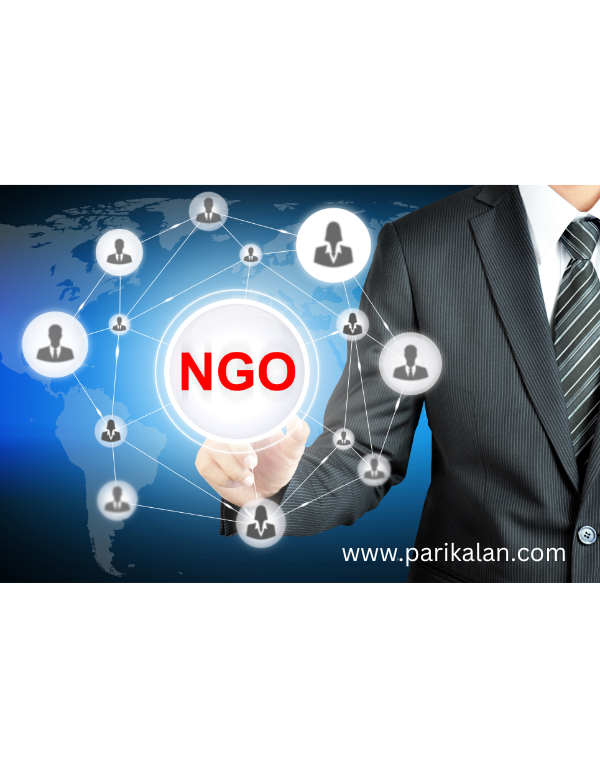From Good to Great: ISO 9001 Certification for Nonprofits and NGOs
What Is an NGO (Non-Governmental Organization)?
An NGO, also referred to as a Non-Governmental Organization, is a non-profit organization that is independent of any government institution. They typically meet to tackle the environmental, social, cultural, and political issues that affect society by promoting advocacy and community service projects or similar activities.
Get Business Development Kit
Types of NGO's
NGO’s, are diverse in their focus and reach based on their area of focus and geographic location. They include social NGO’s that concentrate on human rights and poverty, as well as environmental NGO’s devoted to the conservation and mitigation of climate change. Health NGO’s provide health services or educating educational NGO’s that expand educational opportunities. Geographically, they can provide services to specific communities and national organizations dealing with nationwide issues or collaborating across borders.
NGO’s funded by donors or government grants or membership fees, as well as corporate sponsorships, are some ways in which they could fund themselves. They all play vital roles in addressing different social challenges and causing positive changes within the communities that span boundaries.


Why ISO 9001 certification can benefit NGOs and nonprofits
- Build trust among stakeholders and donors
- Streamline processes and resource management.
- Attract more donors and grants.
- Reduce risks and errors with standard processes.
- Foster ongoing organizational improvement.
- Provide high-quality services reliably.
- Ensuring compliance with legal and regulatory requirements.
Are You Looking To Enhance Your Business Credibility And Quality Standards ?
Steps for Acquiring ISO 9001 Certification for Nonprofits organizations
ISO 9001 certification requires taking certain steps to be in compliance with the standards of quality management. The process begins with an “gap analysis,” where current practices are evaluated against ISO standards to determine areas that need improvement. In addition, “training and awareness programs” provide essential information about ISO principles, as well as advantages associated with ISO accreditation for employees as well as stakeholders.
Organizations then prioritize documenting ISO standards quality policies, procedures, and records with ISO requirements. Once this step has been completed, implementation begins – aligning existing processes to these ISO requirements so as to meet ISO requirements in all operations. Internal audits are then regularly conducted to review processes for any nonconformities that need rectifying.
As soon as an organization feels secure about its compliance, it selects an “accredited certification body” to conduct an external audit. This involves reviewing documentation, site visits, and interviews with employees to ensure adherence with ISO 9001 standards; upon successful completion of this audit, they receive their ISO 9001 certification.
To keep their certification, organizations must commit to “continuous improvement,” updating, and refining processes regularly. Furthermore, surveillance audits conducted by their certification body ensure continued compliance. This rigorous process ensures that they consistently provide high-quality services while upholding stakeholder trust.
Documents Required for Applying ISO 9001 Certification

Company / Service Govt. Registration Proof

Valid Letter Head including Address

Quality Manual

Internal Audit/MRM
Common Challenges in ISO Certification for Nonprofit Organizations and How to Overcome Them
- Limited Resources
Nonprofit organizations often need more financial and human resources, making it challenging to allocate sufficient funds and personnel for certification purposes. Nevertheless, NGOs can engage volunteers and staff members in training in order to maximize the resources that exist.
- Resistance to Change
Staff and volunteers may be resistant to the changes necessary for ISO certification. However, NGOs can address their reluctance by communicating the benefits of accreditation to staff and providing training on its implementation to win their buy-in.
- Lack of Expertise
Nonprofits may need more experience to understand and implement ISO standards, so to combat this challenge, they should hire ISO specialists or quality management consultants (such as Parakalan Consultancy OPC Pvt Ltd ). Also, online resources and training programs should be utilized in order to develop internal knowledge.
- Time Constraints
Certification can be time-consuming, diverting focus from an NGO’s core activities. To minimize disruption during this process, they can develop a detailed project plan with timelines. Assign team members tasked explicitly with overseeing certification duties alongside regular duties.
- Maintaining Documentation
It can be daunting trying to keep up with all the required documentation, which can become an immense task. To manage records more efficiently and make sure they reflect current practices more accurately. Implement a systematic approach to documentation using digital tools as part of an organized approach for record management. Regularly update documents so they are relevant.
- Sustaining Compliance
Ensuring continued compliance with ISO standards can be challenging after certification, which is why NGOs should create a continuous improvement process and conduct regular internal audits and reviews in order to identify areas for enhancement and implement solutions for them.
By understanding and addressing these challenges, NGOs can achieve and maintain ISO certification successfully, furthering operational efficiency and credibility in the process.
Conclusion :
ISO 9001 certification can help NGOs improve their work and gain the trust of donors and communities alike. However, getting there may be difficult due to limited funds, resistance to new processes, and keeping up with standards, but with good planning and regular checks, these challenges can be met head-on.
Parikalan Consultancy OPC Pvt. Ltd. Bahadurgarh , Haryana NCR makes this process simpler by offering expert assistance with document preparation, setting up quality systems, training staff members on them, document retention services, and providing expert consultation for document creation as well as employee training services – helping organizations obtain and maintain certification to have more significant positive impacts within communities worldwide. Working together will get ISO certification smoothly while working with Parikalan Consultancy OPC Pvt Ltd, which will ease this process significantly and allow NGOs to run better while having more enormous positive impacts within communities!

